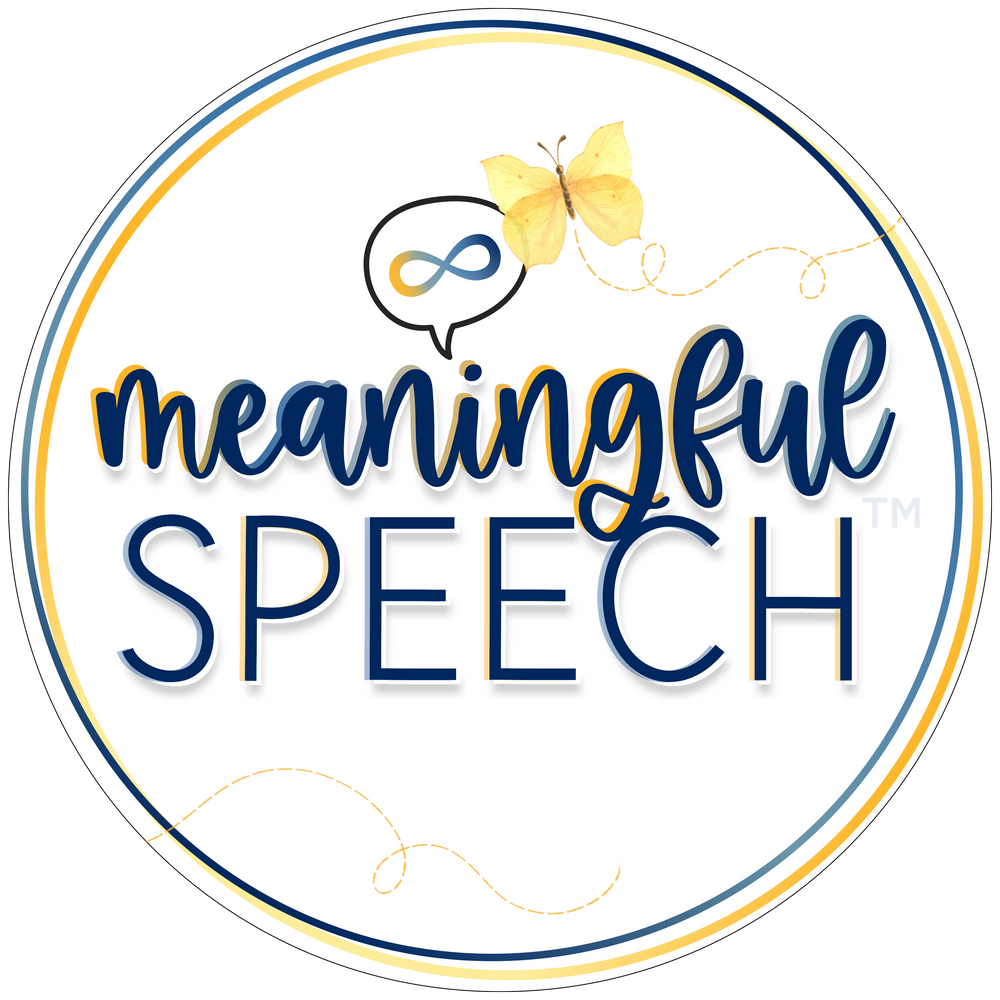How do we know if a gestalt language processor needs support?
Nov 15, 2023
Gestalt language development is a natural and normal way to develop language. Just like analytic language processors can be delayed in their language development, gestalt language processors can be too. Some children will naturally go through the stages on their own and some may need support from a speech-language pathologist knowledgeable about gestalt language development and the Natural Language Acquisition framework. So how do we know?
Age & Stage 1
Although there are no published age norms for when a child should be in each stage of gestalt language development since it is highly individualized, if they are preschool age (3-5 years) and older and still using delayed echolalia/gestalts (Stage 1) to communicate, this is a sign they may need support from a speech-language pathologist who is knowledge about gestalt language development and the Natural Language Acquisition framework. Both gestalt language processors and analytic language processors that are moving through their language development on their own usually are using mainly self-generated language by this age.
Basic needs
Is the child getting their wants and needs met? If they’re in stage 1, for example, and mainly using media gestalts or single words to communicate or are minimally, unreliably, or non-speaking, they may be having difficulty getting their basic needs met and a speech-language pathologist knowledgeable about gestalt language development and can support them by increasing the amount and variety of mitigable gestalts they’re using, and mays well as considering supports like robust AAC to help them successfully get their wants and needs met.
Intelligibility
When children are very young and in Stage 1 of gestalt language development, they are often unintelligible. Their gestalts may sound like intonationally defined strings of language or “jargon.” This is because they are using language that is too long for most children that age to produce intelligibly. However, as they get older if they are still mostly unintelligible, they may need support. They might benefit from AAC, modeling of shorter gestalts, etc.
Neurodiversity-affirming social communication
A gestalt language processor may need support with social communication. Once a gestalt language processor is in Stages 4+ we can start to target goals outside of expressive language. Our goals should not be for the child to appear more neurotypical. Traditional social communication goals such as conversational turn-taking, eye contact goals, size of the problem, "functional" play goals, whole-body listening, expected vs. unexpected, etc. push neurotypical standards. Instead, we may focus on social communication goals such as supporting self-advocacy, teach them about differences in communication style/preferences, the double empathy problem, the Spoon Theory, problem-solving, perspective taking and energy/emotional regulation.
How do I know if a speech-language pathologist (SLP) is knowledgeable about gestalt language development and child-led neurodiversity-affirming therapy?
-
Ask! When reaching out to SLPs or when connecting with your child’s school SLP, ask if they’re knowledgeable or have heard of gestalt language development. If they haven’t that’s okay. Many SLPs still aren’t aware of gestalt language development. However, they should be willing to learn to best support your child. Ask if they’re willing to accept resources. You can share the free references and resources from our website to help them begin their journey.
-
Check our NLA-Trained Clinician Registry. All SLPs listed have completed our Meaningful Speech course and have passed our final written assessment with a score of 80% or higher. We currently have over 1,000+ SLPs listed on our registry that are taking private clients.
-
Check out our blog post on neurodiversity-affirming therapists and questions to ask when looking for a provider here.
Want to learn more in-depth information about how to support gestalt language processors?
1. There are many free podcasts, webinars and articles to get you started. A comprehensive list of resources can also be found on our website and Communication Development Center's website.
2. Consider taking the Meaningful Speech course to learn more about how your child or client processes language, how you can help support them from echolalia to self-generated (original flexible) language, child-led therapy, and neurodiversity-affirming practices. Looking for something shorter? We have a 1-hour introductory course perfect for extended family, daycare or school staff.
3. Consider taking our AAC + Gestalt Language Processing course. It will teach you how to identify, evaluate and support gestalt language processors who use AAC or who you think might benefit from AAC.
4. Look for a speech-language pathologist (SLP) who "gets it" and can help you in supporting your child's language development. Check out our registry for SLPs who understand gestalt language processing and child-led therapy.
5. Are you a school-based or private practice clinician looking for intake forms for new clients/students or creative visual reminder posters for your space? Check out the Meaningful Speech Marketplace.
